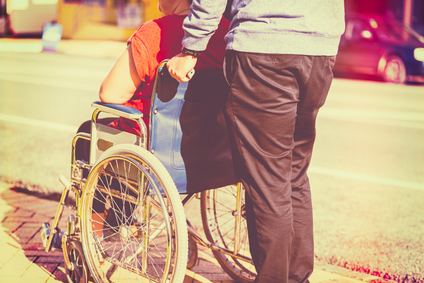When your loved one is struggling with the effects of aging or an illness, they might need your help. While you may want to help, becoming their caregiver can be difficult as the nature of your relationship shifts. The demands of caregiving, while rewarding, can also be overwhelming. The difficulties of providing long term care for your loved one can sometimes result in caregiver burnout.
What Is A Caregiver?
A caregiver is someone who takes care of others. They handle the tasks that others are not able to do for themselves at this time. You probably expect that you will need to take care of young children. However, there can be times where caring for other’s that you didn’t expect can also occur. This includes caring for aging parents, or a sick or disabled family member. A a caregiver might be expected to take their family member to appointments, cook meals, and clean the house. They may also provide emotional and financial support. At times a caregiver may need to provide additional support based on the situation and needs of their loved one.
What Is Caregiver Burnout?
Caregiving can be physically demanding and emotionally draining. Caregivers that need to care for their aging or disabled family member can begin to become overwhelmed. There can be differences of opinion with other family members over what should and should not be done. A lack of control over the situation and outcome can be disheartening, especially when the family member’s condition continues to deteriorate. When a caregiver becomes physically, mentally, and emotionally exhausted their ability to effectively care for their loved one is significantly decreased. Their once nurturing demeanor changes to indifference. This is known as caregiver burnout. Caregiver burnout can be very serious as there is a possibility that it could lead to neglect or abuse if it is not addressed.
Signs of caregiver burnout
When you are aware of the symptoms of caregiver stress, you can start addressing them so you don’t experience burnout. Anxiety and depression are common in caregiver stress. You might experience feelings of sadness, apathy, or constant worry, especially when your family member’s ability to function begins to significantly decline. Irritability might increase and you may experience feelings of hopelessness, or helplessness. There is less time to focus on yourself and the things that bring you joy. Your health may suffer as self-care efforts diminish. You could feel exhausted most of the time and take little satisfaction in your caregiving role. This could lead to increased irritability and impatience with the person you are caring for. If you are a caregiver to an aging, sick, or disabled family member, there are things that you can do to decrease the chances of experiencing caregiver burnout.
Practice Good Self-Care
It is very difficult to effectively care for others if you are not taking care of yourself. Becoming depleted of energy and enthusiasm related to caring for your loved one is common when self-care is neglected. Spend time with friends and family, engage in activities you enjoy, exercise, and take care of your own mental and physical health. Taking walks, practicing meditation, and focusing on your breathing can be helpful when caregiving tasks seem overwhelming. Focusing on your own well-being will recharge your batteries so you are able to meet the needs of your loved one.
Ask For Help
While it is normal to want to do everything for your loved one yourself, you will be a better caregiver if you ask for help. You can enlist the help of friends, family, and neighbors that can provide you with a much needed break. Set up a schedule where others can sit with your loved one while you practice self-care. Hire outside help to do some of the tasks that you have trouble with. Asking others for help can give you the downtime you need, which can help keep you from experiencing caregiver burnout.
Practice Acceptance
Accept the situation for what it is. Focus on what you can control, not what you can’t. If your loved one has a terminal illness, you might not be able to control the probable outcome. However, you can control some of the day to day activities you engage in with them. When your loved one has Alzheimer’s, you might not be able to control what they do or do not remember, but you can control how you respond to them. By accepting what you can’t change and focusing on what you can change, you can feel more empowered to deal with the reality of your loved ones situation.
Get Support
Caregiving can feel lonely and isolating. When you have a job, a family, and a loved one you need to care for, you can be stretched pretty thin. Joining a support group, looking into family leave, and taking advantage of services and support through your job, church, and community can be invaluable. Talking to friends and others that can understand, empathize, and validate your experience, can keep you from feeling so alone. Therapy can also help you manage feelings of depression and anxiety so you are less likely to experience caregiver burnout.
Caring for an aging, ill, or disabled loved one can create a number of challenges that can impact your mental and physical well-being. It is important to reach out to others and ask for the assistance you need. Taking care of yourself will give you the energy you need to care for your loved one without experiencing caregiver burnout.



